
Over many years of flying in Europe, there’s something I’ve noticed about the way European airlines handle flight delays that’s completely different to what we expect in Australia.
Delays happen to all airlines. Of course, no airline wants to run late, and most airlines will try to minimise the inconvenience for passengers when this happens. But European airlines seem to go to much more effort than others to limit the length of any flight delays. They’re also less likely to sell unrealistic schedules in the first place.
That’s because, in Europe, airlines have an added financial incentive to run a reliable operation in the form of regulations known as “EU261”. It seems very effective.
Contents
EU261 compensation for delays
Within the European Union (and the UK), airlines must pay cash compensation to passengers if they arrive at their destination more than a certain number of hours late.
The EU261 compensation thresholds for delays within the airline’s control are:
- €250 (~AU$412) compensation for delays of 2+ hours on flights under 1,500km
- €400 (~AU$660) compensation for delays of 3+ hours on flights between 1,500-3,500km (or above 3,500km if within Europe)
- €600 (~AU$990) compensation for delays of 4+ hours on long-haul flights
European airlines often keep delays just under these thresholds
Earlier this year, I was flying from Amsterdam to Lisbon with TAP Air Portugal. The inbound aircraft was late. Then there was an issue with the plane. Later, some bags needed to be offloaded. By the time we were finally ready to go, we’d lost our take-off slot, pushing the delay out even further.
As we sat on the ground in Amsterdam and the delay was getting close to three hours, I was wondering if this might be the first time I might actually be eligible for EU261 compensation.
In hundreds of flights departing in the European Union, I’ve never once actually claimed EU261 compensation… which probably says a lot about how effective the whole scheme is! Sure enough, my TAP flight did eventually arrive just under three hours late.
This was a full Airbus A320, so the airline could have been up for over AUD100,000 worth of compensation had we arrived more than three hours late. You can see why the pilots did everything they could to make up time!
In reality, some passengers might not bother to claim compensation and many had onward connections, which they may or may not have made. But you get the idea.

This isn’t just a one-off. Next time you’re at a European airport, take a look at the arrivals board. You’ll probably find, as I have, that flights in Europe with extended delays often arrive just under the threshold where the airline would need to pay compensation. I saw this repeatedly on a recent trip to Europe, with different airlines and at different European airports.
This happens in North America as well
A similar thing happened to me a couple of years ago in Canada, where airlines also need to pay passengers compensation for long delays within their control.
I was booked on an evening flight from Calgary to Montreal, which had a rolling delay. Air Canada kept pushing back the estimated departure time, and eventually I was wondering if they would just cancel the flight. But once the delay reached 2.5 hours, things quickly swung into motion. It felt like I was flying to Sydney and our flight was at risk of missing curfew!
Suddenly, Air Canada found a flight crew and was in a hurry to board the flight as fast as possible. We ended up arriving in Montreal 2 hours and 49 minutes late – albeit, in the middle of the night.

I don’t think the length of the delay was a coincidence. Air Canada would have had to pay up if we’d arrived more than three hours late.
As of this week, the United States government also now requires airlines flying to, from or within the USA refund passengers who opt not to fly if the airline cancels or significantly changes their flight. The threshold for a delay to be significant is three hours on domestic flights, or six hours for international flights. So, we might soon see a similar trend in the USA.
It’s a shame Australia won’t get these laws
This is just one of many reasons why frequent flyers, CHOICE and even the ACCC believe Australia should consider a similar compensation scheme for airline passengers.
The Australian government had a great opportunity to get the ball rolling on this with the release of the Aviation White Paper in August. Sadly, the idea was a notable omission from the White Paper – despite many consumer groups including AFF advocating for it during the consultation process.
When asked, the Transport Minister and her department wouldn’t even say whether they discussed or considered a compensation scheme – let alone justify why the government doesn’t want it to happen.
The Qantas Chairman’s Lounge has been in the news this week, given the revelations about the Prime Minister in Joe Aston’s new book. I sincerely hope the fact that the Transport Minister, her spouse, and the Secretary, Deputy Secretary and First Assistant Secretary from her department have all been gifted Chairman’s Lounge membership did not have any impact on the government ignoring this proposal – which, you guessed it, Qantas strongly lobbied against.
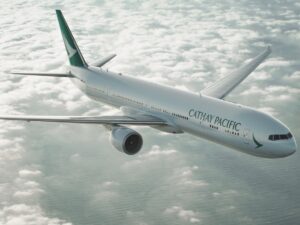

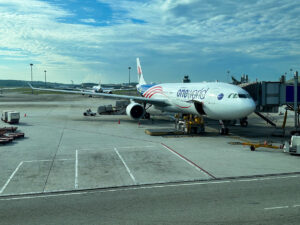
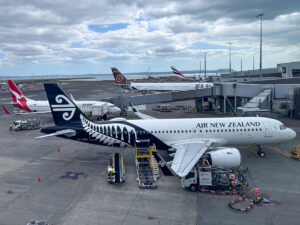


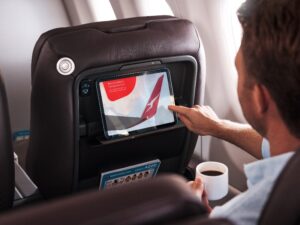
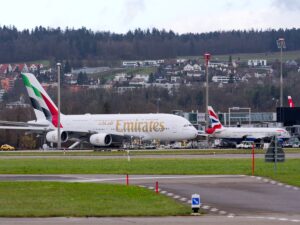
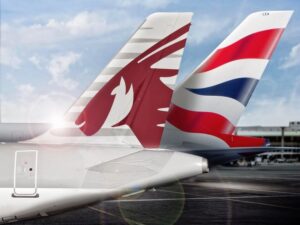
































































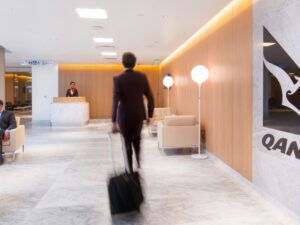
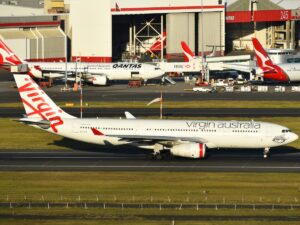





Community Comments
Loading new replies...
Join the full discussion at the Australian Frequent Flyer →